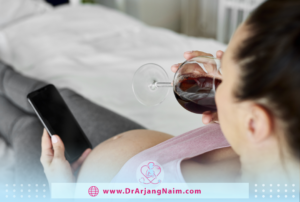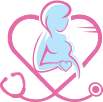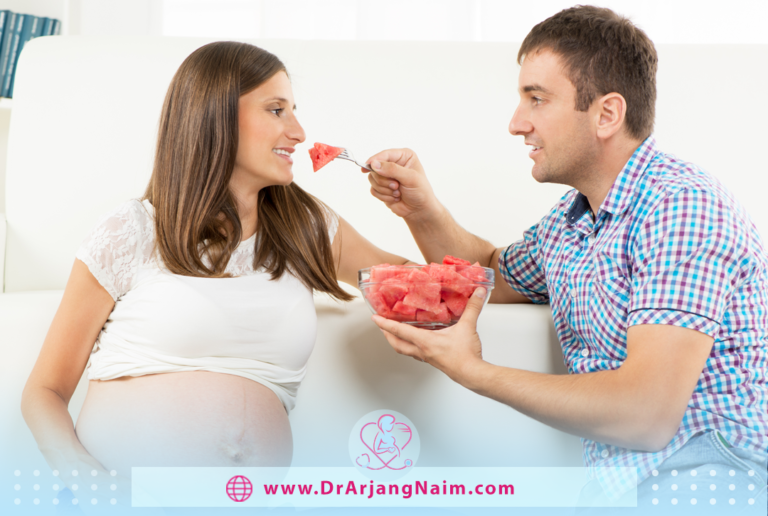As you probably know, the body undergoes many physical and hormonal changes during pregnancy. You must make great food choices from various sources to fuel a growing mother and baby.
A healthy and balanced diet helps moms feel good and provides everything moms and babies need. The food you eat is your baby’s main source of nutrition, so getting all the nutrients it needs is important.
What are the characteristics of a good diet plan for pregnancy?
A healthy diet is an important part of a healthy lifestyle at all times, but it is even more vital during and before pregnancy. A proper pregnancy diet helps your health and the better development of your fetus.
You don’t need to limit your pregnancy diet, but eating various foods daily and getting enough nutrients you and your baby need is important.
It’s best to get your vitamins and minerals from the foods you eat, but when you’re pregnant, you may need to supplement (under your doctor’s supervision) to ensure you get all the minerals you need.

Get the right amount of calories
You’ll probably find hungrier than usual, but you don’t need to eat twice as much, even if you expect twins. Eat a healthy breakfast daily so you don’t crave snacks high in fat and sugar.
You need more micronutrients and macronutrients to support you and your baby. Micronutrients are dietary components such as vitamins and minerals that are needed only in relatively small amounts.
Macronutrients are nutrients that provide calories or energy. You should eat more of each type of nutrient during pregnancy.
The number of calories you need changes during pregnancy. Most women who are at a healthy weight before pregnancy need this number of calories:
- First trimester (first 12 weeks) – almost no extra calories needed
- Second trimester (13 to 26 weeks) – about 340 extra calories per day
- Last trimester (after 26 weeks) – about 450 extra calories per day
Weight gain is a natural part of pregnancy, But the amount depends on many things, including your pre-pregnancy weight.
Important foods in pregnancy diet
Consuming all macronutrients and micronutrients in a pregnancy diet is important, but some are more important.
Protein
Protein is vital to ensure the proper development of a baby’s tissues and organs, including the brain. It also helps the growth of breast tissue and uterus during pregnancy.
It even helps increase blood supply, sending more blood to your baby. The need for protein increases in each trimester of pregnancy. You should consume 70 to 100 grams of protein daily, depending on your weight and trimester.
Good sources of protein include:
- Lean beef and pork
- Chicken
- Salmon
- Nuts
- Cottage cheese
- Beans
- Peanut butter

Calcium
Calcium helps build the baby’s bones and regulates the body’s fluid intake. Pregnant women need 1000 mg of calcium, ideally in two doses of 500 mg daily. Calcium supplements are usually needed during pregnancy. Good sources of calcium include:
- Milk
- Yogurt
- Cheese
- Calcium-set tofu
- Dark green, leafy vegetables
- Low-mercury fish and seafood
Folate
Folate, also known as folic acid, reduces the risk of neural tube defects. Neural tube defects are major congenital diseases that affect a child’s brain and spinal cord, such as spina bifida and anencephaly.
When you’re pregnant, the American College of Obstetricians and Gynecologists (ACOG) recommends 600 to 800 micrograms of folate. You can get folate from these foods:
- Dried beans and lentils
- Eggs
- Nuts and peanut butter
- Liver
- Nuts
- Dark green, leafy vegetables
Iron
Iron works with sodium, potassium, and water to increase blood flow. This helps ensure that you and your baby are getting enough oxygen. You should get 27 milligrams of iron daily, preferably with some vitamin C to increase absorption. Good sources of this nutrient include:
- Enriched breads or cereals
- Lean beef and poultry
- Dark green, leafy vegetables
- Citrus fruits
- Eggs

Healthy eating when pregnant
Although nausea and vomiting can be a problem in the first few months of pregnancy, try to eat a balanced pregnancy diet with adequate vitamins.
- Variety in foods: Recommended daily servings include 6 to 11 servings of bread and cereals, 2 to 4 servings of fruit, four or more servings of vegetables, four servings of dairy products, and three servings of protein sources. For healthy nutrition during pregnancy, reduce the amount of fats and sweets.
- Choosing fiber-rich foods such as whole-grain bread, cereals, beans, pasta, rice, and fruits and vegetables is essential in a pregnancy diet. Although it is best to get your fiber from food, a fiber supplement can help you get the amount you need.
- The pregnancy diet should contain enough vitamins and minerals. You should take vitamin supplements before the baby is born to ensure this.
- Eat and drink at least four servings of dairy and calcium-rich foods a day to ensure you get 1,000-1,300 milligrams of calcium in your daily diet during this time.
- For a healthy diet, eat at least three servings of iron-rich foods such as lean meats, spinach, beans, and breakfast cereals daily to ensure you get 27 milligrams of iron daily.
- During pregnancy, you need 220 micrograms of iodine daily to ensure the development of the baby’s brain and nervous system from a variety of dairy products, too – milk, cheese, yogurt, as well as baked potatoes, baked navy beans, and limited amounts of 8 to 12 ounces per week of seafood such as cod, salmon, and shrimp.
- Choose daily sources of vitamin C such as oranges, grapefruit, strawberries, honey, papaya, broccoli, cauliflower, Brussels sprouts, green peppers, tomatoes, and mustard greens. Pregnant women need 80 to 85 mg of vitamin C daily for nutrition during pregnancy.
What is not safe to eat during pregnancy?
During pregnancy, it’s important to be mindful of your diet to ensure the health and well-being of both the mother and the developing baby.
Raw or undercooked seafood and eggs
Raw or undercooked fish, shellfish, and eggs may contain harmful bacteria or parasites that can cause foodborne illnesses. Avoiding sushi, raw oysters, and dishes with raw or undercooked eggs is advisable.
Certain fish high in mercury
Mercury can harm the developing nervous system of the fetus. Avoid or limit the consumption of high-mercury fish such as shark, swordfish, king mackerel, and tilefish. Opt for low-mercury alternatives like salmon, trout, and shrimp.
Soft cheeses and unpasteurized dairy products
Some soft cheeses like feta, Brie, and blue cheese may risk Listeria contamination. Listeria can lead to serious complications during pregnancy. Choose pasteurized versions of these cheeses.
Undercooked or raw meat
To avoid the risk of foodborne illnesses, make sure all meat, poultry, and seafood are cooked thoroughly. This includes avoiding rare or medium-rare meat.
Excessive caffeine
High levels of caffeine intake during pregnancy have been associated with an increased risk of miscarriage and preterm birth. Limit your caffeine intake to about 200-300 milligrams daily, roughly equivalent to one 12-ounce cup of coffee.

Alcohol
The consumption of alcohol during pregnancy is linked to various developmental issues and birth defects. It’s best to avoid alcohol entirely during this time.
Highly processed foods
Processed foods may contain additives, preservatives, and excessive salt and sugar. Opt for whole, nutrient-dense foods to provide essential vitamins and minerals.
Unwashed fruits and vegetables
Thoroughly wash all fruits and vegetables to remove any potential pesticide residue or harmful bacteria.
Excessive vitamin A
High vitamin A levels from animal sources (retinol) can harm the developing fetus. Avoid consuming excessive amounts of liver and liver products during pregnancy.
It’s crucial to consult with your healthcare provider for personalized advice based on your specific health conditions and needs. A well-balanced and varied diet and proper prenatal care are essential for a healthy pregnancy.
What should you eat for healthy nutrition when you are pregnant and unwell?
During pregnancy, you may experience morning sickness, diarrhea, or constipation. Sometimes, it is not possible to eat without nausea, or you may even feel so sick that you are not able to eat. Here are some suggestions for healthy eating:
- Morning sickness: Eat crackers, cereal, or pretzels before getting out of bed. Eat small and frequent meals throughout the day. Avoid fatty, fried, spicy, and fatty foods.
- Constipation: Eat more fresh fruits and vegetables. Also, drink 6 to 8 glasses of water daily.
- Diarrhea: Eat more foods containing pectin and gum (dietary fiber) to help absorb excess water. These foods include applesauce, bananas, white rice, oatmeal, and fortified wheat bread.
- Heartburn: Eat small and frequent meals throughout the day. Drink milk before meals and limit caffeinated foods and drinks, citric drinks, and spicy foods.
The bottom line
Ensure you eat a balanced and nutritious diet during pregnancy to keep you and your growing baby healthy.
Eat whole and nutritious foods and limit the consumption of foods without good nutritional value, such as processed and fast foods.
Additional questions
- How can a pregnant woman get enough calcium if she is lactose intolerant?
If a pregnant woman is lactose intolerant and needs to get enough calcium from non-dairy sources, she can include several alternative sources of calcium in her diet. Here are some lactose-free options:
- Lactose-free dairy products
- Fortified plant-based milk
- Leafy green vegetables
- Tofu and tempeh
- Canned fish with bones
- Fortified foods
- Nuts and seeds
- Calcium supplements
- Is it possible to maintain a vegetarian diet during pregnancy?
Just being pregnant does not mean giving up a vegetarian diet. It will be suitable if this diet includes a wide variety of healthy foods with enough protein and calories for mother and child.
Depending on the type of vegetarian diet plan you follow; you may need to change your eating habits to ensure you are meeting the needs of both mother and baby. The mother’s number of calories should be 300 more than before pregnancy.
- How much weight should a woman gain during pregnancy?
There isn’t a one-size-fits-all answer to how much weight is appropriate during pregnancy, as it varies based on factors like pre-pregnancy weight, overall health, and individual circumstances.
Here are the general guidelines for weight gain during pregnancy based on pre-pregnancy BMI (Body Mass Index):
- Underweight (BMI less than 18.5): Recommended weight gain is between 28 to 40 pounds.
- Normal weight (BMI 18.5 to 24.9): Recommended weight gain is 25 to 35 pounds.
- Overweight (BMI 25 to 29.9): Recommended weight gain is 15 to 25 pounds.
- Obese (BMI 30 or more): Recommended weight gain is between 11 to 20 pounds.
- Are heartburn and swallowing symptoms of early pregnancy?
Yes. Heartburn and indigestion are common early pregnancy symptoms, especially if you don’t usually suffer from acid reflux or get indigestion after consuming common foods and drinks.
- Can I eat fish during pregnancy?
Yes, but choose low-mercury options like salmon and avoid high-mercury. Fish. Omega-3 fatty acids in fish are beneficial for fetal development.
References
https://www.healthline.com/health/pregnancy/nutrition#takeaway
https://www.webmd.com/baby/eating-right-when-pregnant#1
https://www.bda.uk.com/resource/pregnancy-diet.html




